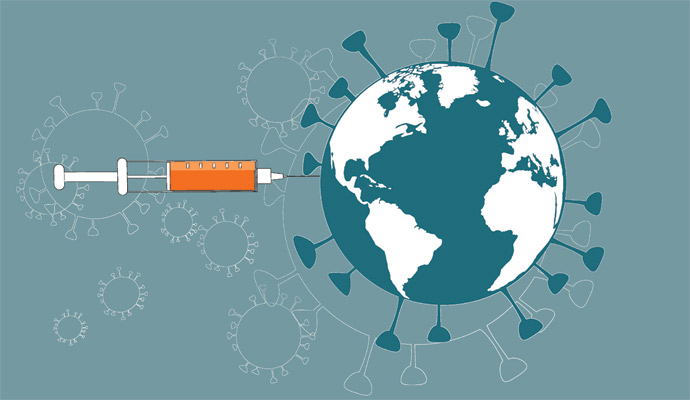Half of Black Americans Would Not Get the COVID-19 Vaccine
Black Americans would not even get the COVID-19 vaccine even if it was approved by the FDA and free, underscoring longstanding racial disparities in healthcare, according to a new report.

Source: Getty Images
- Nearly half (49 percent) of Black Americans said they would not get a COVID-19 vaccine even if it was deemed safe by scientists and freely available, according to a Kaiser Family Foundation (KFF) report.
KFF partnered with ESPN’s The Undefeated to conduct a survey of 1,769 adults, including 777 African Americans, from August 20 through September 14, 2020.
Researchers focused on racism and discrimination in healthcare, impacts of the pandemic, and views on a potential COVID-19 vaccine.
Racial disparities were even observed among Black Democrats, who are more likely than Republicans to report that they would not get the COVID-19 vaccine. Among different political parties, 65 percent of White Democrats said they would “definitely” get vaccinated compared to just 23 percent of Black Democrats.
Similarly, White independents were more than three times as likely to report they would definitely get a vaccine (41 percent) compared to those who are Black (12 percent).
Safety concerns (39 percent) and distrust (35 percent) were cited as the top reasons. But a majority of Black adults also had little to no confidence that the vaccine development process was taking the needs of Black people into account.
Additionally, 61 percent of Black adults said they are “not at all confident” that an eventual vaccine will have been properly tested for safety and effectiveness, while 66 percent are not confident that it will be distributed in a way that is fair.
Anecdotally, Black respondents also expressed concerns about trusting the stakeholders in charge of distributing the vaccines and whether the vaccine should be tested on racial and ethnic populations before being given to Black people.
In general, seven in ten Black adults said they believe race-based discrimination in healthcare happens at least somewhat often and one in five said they have personally experienced this in the past year.
In contrast, just 16 percent of White adults reported the same.
And specifically due to the disproportionate impact of the COVID-19 pandemic on Black individuals and families, a majority of Black men and women, regardless of age, income, and education, said it was a “bad time” to be Black in America.
Most Black adults in the report (71 percent) stated that unconscious bias, racism, and discrimination, and structural and system barriers have been personal obstacles in their lives.
Achieving a high vaccination rate will allow public health officials to overcome various barriers to vaccination among Back people, many of which come from experiencing a history of mistreatment by the medical system and ongoing discrimination today, researchers explained.
Addressing racial disparities is a top priority for the pharmaceutical industry, which is currently tasked with identifying and correcting instances of unconscious bias, racism, and discrimination that impact drug development, distribution, and adherence.
“The biopharmaceutical industry is doing everything it can to find vaccines and therapeutics to help end a pandemic that has had a disproportionate impact on Black and Brown communities,” Stephen J. Ubl, president and CEO of PhRMA, recently said in response to the White House’s order to promote unity in the federal workplace and combat “offensive and anti-American race and sex stereotyping and scapegoating.”
Ubl spoke against the order, which ultimately restricts workplace diversity training programs and free speech within private companies that have contractual partnerships with or grants from the federal government.
“Diversity is essential to a robust innovation ecosystem that can create new medicines for those who need them,” Ubl stated. “Our member companies’ longstanding diversity, equity and inclusion trainings and broader efforts play a significant role in achieving that diversity. They help ensure we have open and honest conversations about racial equity and what it means to have a culture of inclusion; it is how we build toward broader health equity in our nation.”
